March 25 stands as one of history’s most eventful days, witnessing the rise and fall of empires, groundbreaking discoveries, and moments that shaped our modern world across centuries of human achievement.

Politics and Government Events on March 25
1918 – Belarusian People’s Republic Established
Revolutionary forces proclaimed the independence of Belarus, establishing the Belarusian People’s Republic amid the chaos of World War I. The declaration marked a crucial moment in Belarusian national consciousness and political identity.
Though short-lived, this first attempt at Belarusian statehood laid the foundation for future independence movements. The republic’s ideals would inspire generations of Belarusians seeking national self-determination.
1924 – Second Hellenic Republic Proclaimed
Alexandros Papanastasiou declared the Second Hellenic Republic on Greece’s Independence Day anniversary, ending the monarchy. This bold political transformation represented a decisive shift toward democratic governance in Greece.
The proclamation came during a period of intense political upheaval following Greece’s defeat in the Greco-Turkish War. Republican ideals temporarily replaced centuries of monarchical rule in the Mediterranean nation.
1941 – Yugoslavia Joins Axis Powers
The Kingdom of Yugoslavia reluctantly signed the Tripartite Pact, officially joining Nazi Germany’s Axis alliance. This controversial decision sparked immediate outrage among Yugoslav citizens and military officers.
The agreement’s unpopularity led to a coup just two days later, ultimately drawing Yugoslavia into World War II. The signing demonstrated the impossible choices facing neutral nations during the global conflict.
1957 – European Economic Community Founded
Six European nations signed the Treaty of Rome, establishing the European Economic Community and launching European integration. West Germany, France, Italy, Belgium, Netherlands, and Luxembourg became founding members of this historic alliance.
The agreement created a common market that would transform European politics and economics for decades. This pivotal moment laid the groundwork for what would eventually become the European Union.
1995 – Belarusian Presidential Election Controversy
Opposition protesters demanding new elections clashed with riot police following Belarus’s disputed presidential election. Aleksander Kozulin and other opposition leaders were arrested during the demonstrations.
The protests highlighted growing authoritarianism in Belarus and the regime’s unwillingness to accept democratic opposition. International observers had declared the election fraudulent, intensifying calls for electoral reform.
Military and Naval History on March 25
1917 – Georgian Orthodox Church Restores Independence

The Georgian Orthodox Church declared its autocephaly, restoring independence that Imperial Russia had abolished in 1811. This religious liberation accompanied Georgia’s broader struggle for national autonomy during the Russian Revolution.
The restoration represented a crucial victory for Georgian cultural identity and spiritual independence. Church leaders had maintained their resistance to Russian religious control throughout the imperial period.
1971 – South Vietnamese Forces Abandon Laos Operation
The Army of the Republic of Vietnam retreated from their ambitious attempt to sever the Ho Chi Minh Trail in Laos. This strategic failure demonstrated the limitations of South Vietnamese military capabilities without direct American ground support.
The unsuccessful operation allowed North Vietnamese forces to maintain their crucial supply lines. The retreat marked a turning point in the Vietnam War’s later phases.
1975 – Saudi King Faisal Assassinated

King Faisal of Saudi Arabia was shot and killed by his nephew during a royal reception. The assassination shocked the Islamic world and created uncertainty about Saudi Arabia’s future leadership.
The killing occurred during a period of rising oil prices and increased Saudi influence in global affairs. Faisal’s death marked the end of an era of modernization and reform in the kingdom.
2018 – Syrian Democratic Forces Begin Afrin Insurgency
Following Turkey’s completion of Operation Olive Branch, the Syrian Democratic Forces launched an insurgency against Turkish occupation forces in the Afrin District. This marked a new phase in Syria’s complex multi-sided conflict.
The insurgency demonstrated Kurdish determination to resist Turkish control over their traditional territories. The conflict added another layer to Syria’s ongoing civil war complications.
Science and Discovery Milestones on March 25
1948 – First Successful Tornado Forecast
Meteorologists achieved a breakthrough by successfully predicting that a tornado would strike Tinker Air Force Base in Oklahoma. This pioneering forecast revolutionized severe weather prediction and public safety protocols.
The accurate prediction demonstrated the potential for scientific weather forecasting to save lives and property. This milestone established the foundation for modern tornado warning systems across America.
1979 – Space Shuttle Columbia Delivered

NASA received the first fully functional Space Shuttle orbiter, Columbia, at Kennedy Space Center for launch preparations. This delivery marked a crucial milestone in America’s reusable spacecraft program.
Columbia’s arrival represented years of technological innovation and engineering excellence. The shuttle would soon revolutionize space exploration and scientific research in low Earth orbit.
1995 – WikiWikiWeb Launches

Ward Cunningham made WikiWikiWeb public, creating the world’s first wiki as part of the Portland Pattern Repository. This revolutionary platform introduced collaborative editing and knowledge sharing to the internet.
The wiki concept would fundamentally transform how people create and share information online. Cunningham’s innovation laid the groundwork for Wikipedia and countless other collaborative platforms.
1996 – British Beef Export Ban
The European Union’s Veterinarian Committee banned British beef exports due to mad cow disease concerns. This unprecedented action protected public health while devastating Britain’s agricultural economy.
The ban highlighted the serious risks of bovine spongiform encephalopathy and food safety failures. International cooperation proved essential in addressing transnational health threats.
Cultural and Arts Events on March 25
1957 – “Howl” Seized for Obscenity
United States Customs officials confiscated copies of Allen Ginsberg’s groundbreaking poem “Howl” on obscenity charges. This censorship attempt sparked a landmark legal battle over artistic freedom and expression.
The seizure represented broader cultural tensions between conservative authorities and the emerging Beat Generation movement. The subsequent trial would establish important precedents for literary freedom in America.
1911 – Triangle Shirtwaist Factory Fire

A devastating fire killed 146 garment workers at the Triangle Shirtwaist Factory in New York City. This industrial tragedy exposed dangerous working conditions and sparked major labor safety reforms.
The victims, mostly young immigrant women, died due to locked exits and inadequate safety measures. Their deaths galvanized the American labor movement and led to comprehensive workplace safety legislation.
1932 – Tomb of Unknown Soldier Unveiled
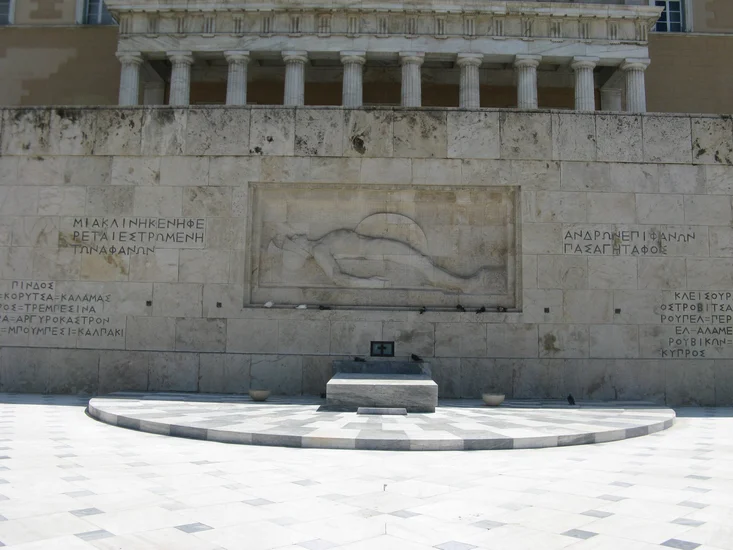
Greece unveiled its Tomb of the Unknown Soldier in Athens, honoring fallen heroes of the nation’s wars. The memorial became a powerful symbol of Greek sacrifice and national unity.
The tomb’s dedication provided a focal point for Greek remembrance and patriotic ceremonies. Its placement in central Athens emphasized the nation’s commitment to honoring military service.
1905 – Diagoras Football Club Founded

The Greek football club P.A.E. G.S. Diagoras was established in Rhodes, beginning a long tradition of athletic excellence. The club’s founding reflected the growing popularity of organized sports in early 20th-century Greece.
Named after the ancient Olympic boxer Diagoras of Rhodes, the club connected modern athletics with classical Greek heritage. The organization would become a cornerstone of Rhodian sports culture.
Religious and Social Events on March 25
1965 – Selma to Montgomery March Completed
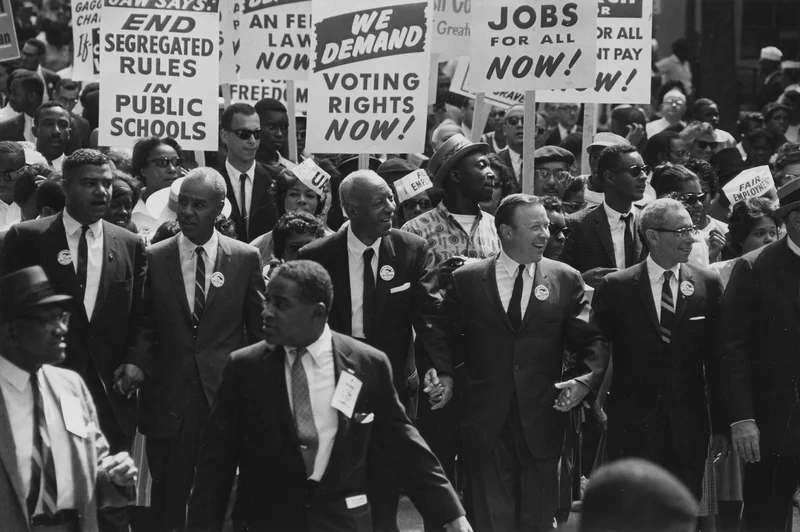
Civil rights activists led by Martin Luther King Jr. successfully completed their historic 50-mile march from Selma to Montgomery, Alabama. The four-day journey challenged racial segregation and voting rights restrictions.
The march demonstrated the power of nonviolent resistance and captured national attention for the civil rights movement. Thousands of Americans witnessed the peaceful protest’s moral authority against institutionalized racism.
1988 – Candle Demonstration in Bratislava
The Candle Demonstration became the first mass protest of the 1980s against Czechoslovakia’s communist regime. Thousands of citizens gathered peacefully to demand religious freedom and political reform.
The demonstration marked a turning point in Czechoslovak resistance to authoritarian rule. The peaceful protest inspired further opposition movements that would eventually lead to the Velvet Revolution.
1949 – Mass Deportations from Baltic States
Soviet authorities suddenly deported more than 92,000 kulaks from the Baltic states to Siberia in a single operation. This massive forced relocation represented Stalin’s brutal campaign to eliminate perceived enemies of the state.
The deportations devastated Baltic communities and demonstrated the Soviet Union’s systematic persecution of entire populations. Families were torn apart and sent to harsh labor camps thousands of miles from home.
1931 – Scottsboro Boys Arrested
Nine African American teenagers were arrested in Alabama and falsely charged with rape, beginning the infamous Scottsboro case. This legal travesty exposed the deep racial injustices of the American South.
The case became a symbol of systemic racism in the judicial system and attracted international attention. The prolonged legal battles would span decades and highlight the need for civil rights reform.
Business and Economic Events on March 25
1959 – Chain Island Sold to Private Businessman

California sold Chain Island to Sacramento businessman Russell Gallaway III for $5,258.20, intended as a hunting and fishing retreat. The transaction represented the state’s disposal of remote public lands to private interests.
The sale price, equivalent to $56,716 in 2024, reflected the island’s perceived limited commercial value. Gallaway’s purchase demonstrated growing interest in private recreational properties among affluent Americans.
1931 – Centralia Mine Explosion
A catastrophic explosion in a Centralia, Illinois coal mine killed 111 workers in one of America’s deadliest mining disasters. The tragedy highlighted the dangerous conditions faced by coal miners and the need for improved safety regulations.
The explosion resulted from accumulated coal dust and inadequate ventilation systems. The disaster prompted investigations into mining safety practices and led to stronger federal oversight of the coal industry.
1911 – Beilis Affair Begins
The murder of Andrey Yushchinsky in Kiev initiated the infamous Beilis affair, a case that exposed widespread anti-Semitism in Imperial Russia. The false accusation of ritual murder against Mendel Beilis sparked international outrage.
The case became a cause célèbre, revealing the persistence of medieval blood libel accusations in modern Europe. The trial’s outcome would test Russia’s commitment to justice and religious tolerance.
Transportation and Infrastructure on March 25
2006 – Capitol Hill Massacre
A gunman killed six people before taking his own life at a party in Seattle’s Capitol Hill neighborhood. This tragic shooting highlighted urban violence and the need for improved community safety measures.
The massacre shocked Seattle’s artistic community and raised questions about mental health resources. The incident demonstrated the devastating impact of gun violence on close-knit neighborhoods.
1919 – Tetiev Pogrom
The Tetiev pogrom in Ukraine became a prototype for the mass murder techniques later used during the Holocaust. This systematic violence against Jewish civilians demonstrated the organized nature of ethnic persecution.
The pogrom’s methods and scale prefigured the genocidal policies that would emerge decades later. Historical analysis reveals disturbing continuities between early 20th-century pogroms and Nazi extermination programs.
1914 – Aris Thessaloniki Founded
The Greek multi-sport club Aris Thessaloniki was established in Greece’s second-largest city. The club’s founding reflected the growing importance of organized athletics in Greek urban culture.
The organization would become one of Greece’s most successful sports clubs across multiple disciplines. Its establishment marked Thessaloniki’s emergence as a major center of Greek athletic competition.
Sports and Recreation on March 25
1927 – Wim van Est Born

Dutch cyclist Wim van Est was born, beginning a life that would make him a legend in professional cycling. His career would span the golden age of European bicycle racing.
Van Est became famous for his aggressive racing style and memorable crashes during major tours. His adventures, particularly at the Tour de France, made him one of Holland’s most beloved sporting figures.
1965 – Stefka Kostadinova Born

Bulgarian high jumper Stefka Kostadinova was born, destined to become one of track and field’s greatest athletes. Her career would redefine the limits of human athletic achievement.
Kostadinova would set the world record in the women’s high jump that still stands today. Her remarkable career made her Bulgaria’s most celebrated female athlete.
1971 – Sheryl Swoopes Born

American basketball player Sheryl Swoopes was born, future pioneer of women’s professional basketball. Her athletic talents would help establish the WNBA as a major professional sports league.
Swoopes became the first player signed to the newly formed Women’s National Basketball Association. Her combination of skill and marketability helped legitimize women’s professional basketball in America.
Notable Births on March 25
1947 – Elton John Born

English singer-songwriter Elton John was born Reginald Kenneth Dwight in Pinner, Middlesex. His musical partnership with lyricist Bernie Taupin would create some of popular music’s most enduring songs.
John’s flamboyant stage presence and melodic genius made him one of the best-selling music artists of all time. His career spanning over five decades established him as a global entertainment icon.
1942 – Aretha Franklin Born

American singer-songwriter Aretha Franklin was born in Memphis, Tennessee, destined to become the undisputed Queen of Soul. Her powerful voice and emotional depth would revolutionize popular music.
Franklin’s career bridged gospel, soul, and pop music while advancing civil rights through her artistry. Her influence on American music and culture extends far beyond her numerous hit records.
1965 – Sarah Jessica Parker Born

American actress Sarah Jessica Parker was born in Nelsonville, Ohio, future star of stage and screen. Her versatile performances would span Broadway, film, and television.
Parker’s portrayal of Carrie Bradshaw in “Sex and the City” made her a cultural icon. Her career demonstrates the evolution of women’s roles in entertainment and fashion.
1958 – Danica Patrick Born

American race car driver Danica Patrick was born in Beloit, Wisconsin, destined to break barriers in motorsports. Her racing career would inspire countless young women to pursue careers in male-dominated fields.
Patrick became the most successful woman in American open-wheel racing history. Her achievements paved the way for greater female participation in professional motorsports.
1920 – Patrick Troughton Born

English actor Patrick Troughton was born in Mill Hill, London, future star of stage and screen. His theatrical training prepared him for a distinguished career in British entertainment.
Troughton became beloved worldwide for his portrayal of the second Doctor in “Doctor Who.” His interpretation of the character helped establish the show’s enduring popularity.
1925 – Flannery O’Connor Born

American writer Flannery O’Connor was born in Savannah, Georgia, destined to become one of literature’s most distinctive voices. Her Southern Gothic style would influence generations of writers.
O’Connor’s short stories and novels explored themes of faith, morality, and human nature with dark humor. Her work earned critical acclaim despite her tragically shortened career.
1934 – Gloria Steinem Born

American feminist activist Gloria Steinem was born in Toledo, Ohio, future leader of the women’s liberation movement. Her journalism and advocacy would advance women’s rights for decades.
Steinem co-founded Ms. magazine and became a prominent voice for gender equality. Her work helped transform American attitudes toward women’s roles in society.
1928 – Jim Lovell Born
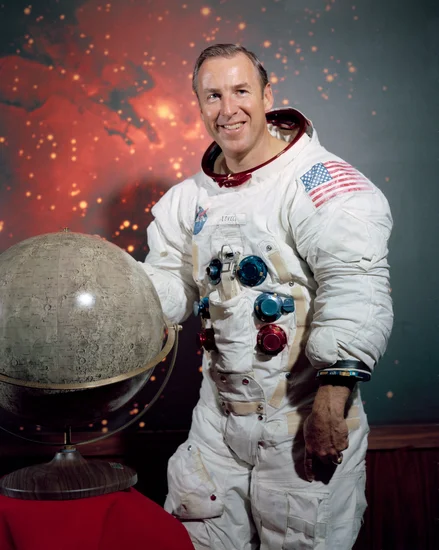
American astronaut Jim Lovell was born in Cleveland, Ohio, destined for space exploration history. His naval aviation background prepared him for NASA’s demanding astronaut program.
Lovell commanded the harrowing Apollo 13 mission that became a testament to human ingenuity and courage. His space career helped establish America’s leadership in lunar exploration.
Notable Deaths on March 25
1918 – Claude Debussy Dies
French composer Claude Debussy died in Paris at age 55, leaving behind a revolutionary musical legacy. His impressionistic style transformed classical music and influenced countless composers.
Debussy’s harmonic innovations and atmospheric compositions bridged 19th and 20th-century musical traditions. His works like “Clair de Lune” and “La Mer” remain cornerstones of classical repertoire.
1975 – Faisal of Saudi Arabia Dies

King Faisal of Saudi Arabia was assassinated by his nephew, ending his transformative reign. His death shocked the Islamic world and created uncertainty about Saudi Arabia’s future direction.
Faisal had modernized Saudi Arabia while maintaining its Islamic character and traditions. His assassination marked the end of an era of progressive leadership in the kingdom.
1965 – Viola Liuzzo Dies
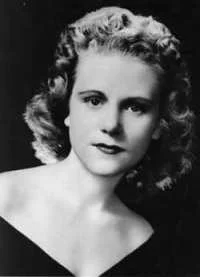
Civil rights activist Viola Liuzzo was murdered by Ku Klux Klan members after participating in the Selma to Montgomery marches. Her death demonstrated the deadly risks faced by civil rights workers.
Liuzzo was the only white woman killed during the civil rights movement, making her death particularly significant. Her sacrifice helped galvanize support for federal civil rights legislation.
1931 – Ida B. Wells Dies

American journalist and activist Ida B. Wells died in Chicago at age 68, concluding a lifetime of fighting for civil rights. Her investigative journalism exposed the horrors of lynching in the American South.
Wells co-founded the NAACP and pioneered investigative reporting on racial violence. Her courageous work laid the foundation for the modern civil rights movement.
2022 – Taylor Hawkins Dies

American drummer Taylor Hawkins died in Bogotá, Colombia, at age 50, shocking the music world. His death marked the end of an era for the Foo Fighters and rock music.
Hawkins had been the Foo Fighters’ drummer since 1997, contributing to their most successful albums. His energetic performances and musical versatility made him one of rock’s most respected drummers.
1973 – Edward Steichen Dies

Photographer Edward Steichen died in West Redding, Connecticut, at age 93, concluding a pioneering career in photography. His work bridged art and fashion photography across the 20th century.
Steichen’s innovations in pictorialism and fashion photography influenced generations of photographers. His exhibitions at the Museum of Modern Art helped establish photography as fine art.
1914 – Frédéric Mistral Dies
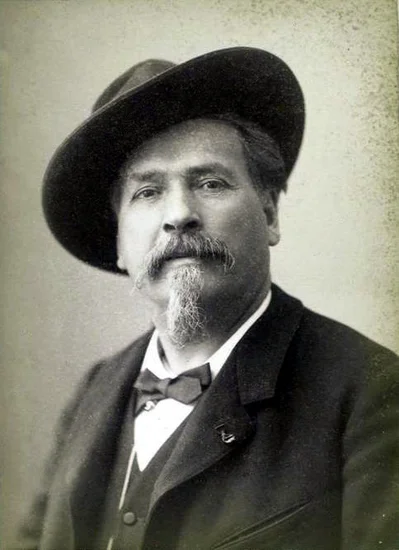
French poet Frédéric Mistral died in Maillane, France, at age 84, having won the Nobel Prize in Literature in 1904. His work promoted Provençal language and culture in modern France.
Mistral’s poetry celebrated regional traditions while achieving international recognition. His literary achievements helped preserve Occitan culture and language for future generations.
Holidays and Observances on March 25
Independence Day (Greece)
Greece celebrates Independence Day, commemorating the start of the Greek War of Independence from the Ottoman Empire in 1821. The day honors the heroes who fought for Greek freedom and national sovereignty.
The celebration includes military parades, flag ceremonies, and cultural events throughout Greece. The holiday reinforces Greek national identity and remembrance of the struggle for independence.
Feast of the Annunciation

Christians worldwide observe the Feast of the Annunciation, celebrating the angel Gabriel’s announcement to Mary that she would bear Jesus Christ. This fundamental Christian feast marks the beginning of the Incarnation.
The celebration holds special significance in Orthodox Christianity and Catholic traditions. Many cultures observe special liturgies and customs on this important religious holiday.
International Day of Remembrance of Slavery Victims
The United Nations observes the International Day of Remembrance of the Victims of Slavery and the Transatlantic Slave Trade. This day honors the millions who suffered and died under the brutal system of slavery.
The observance promotes education about slavery’s historical impact and ongoing legacy. It encourages reflection on human rights and the continued fight against modern forms of slavery.
Maryland Day (United States)
Maryland celebrates Maryland Day, commemorating the arrival of English colonists in 1634. The holiday honors the founding of the Maryland colony and its role in American history.
The celebration includes historical reenactments and educational programs about Maryland’s colonial heritage. The day emphasizes Maryland’s unique history of religious tolerance and diversity.
Tolkien Reading Day
Fans worldwide celebrate Tolkien Reading Day, honoring the works of J.R.R. Tolkien, author of “The Lord of the Rings” and “The Hobbit.” The date marks the fall of Sauron and the destruction of the Ring in Middle-earth.
The observance encourages reading and sharing Tolkien’s works while celebrating their literary impact. Libraries and schools often host special events promoting fantasy literature and imagination.
